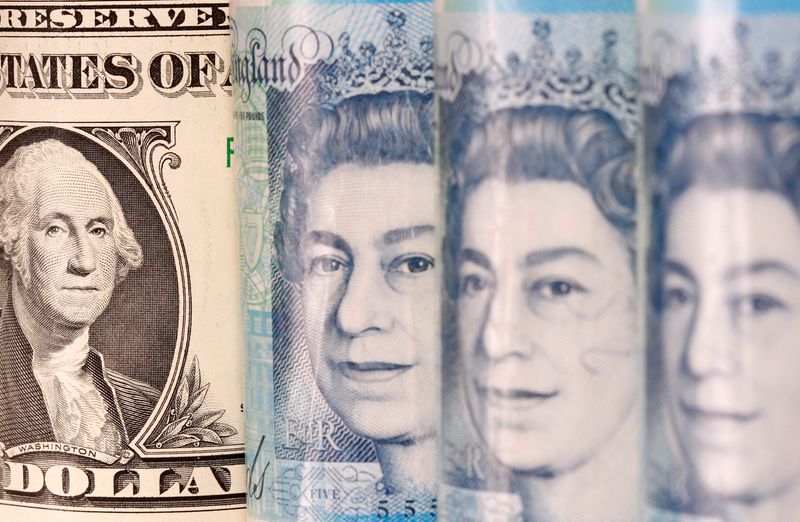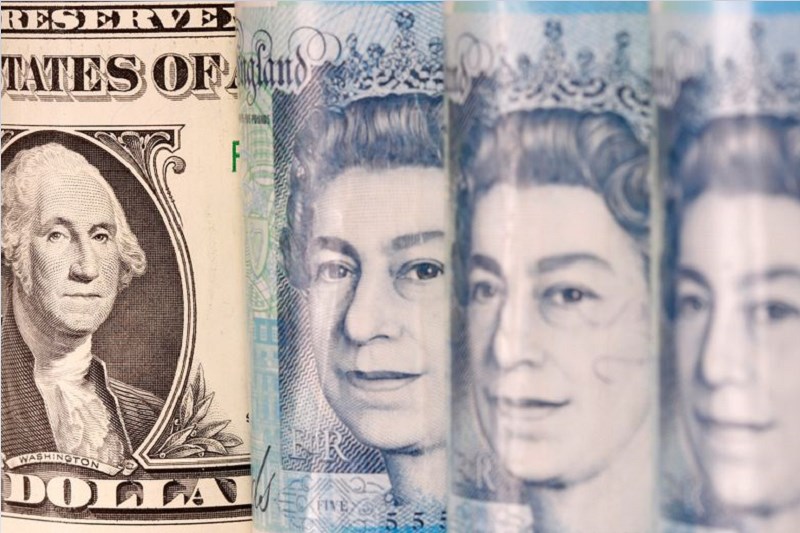By Medha Singh
(Reuters) - The pound hovered near three-month lows against a stronger dollar on Wednesday, after a sharp fall in the previous session following data that showed inflation was easing in the UK.
Sterling dipped 0.1% to $1.2795 after hitting its lowest since early August at $1.2719 on Tuesday, after data showed regular pay for British workers grew at its slowest pace in two years in the third quarter, supporting the Bank of England's confidence that inflation pressures will continue to ease.
The BoE last week lowered interest rates for the second time since 2020 and said the Labour government's first budget would lead to higher inflation and economic growth.
Stubborn UK inflation has so far forced the BoE to cut rates more slowly than either the euro zone or U.S. central banks, helping the pound outperform major currencies against the dollar this year.
However, sterling could become vulnerable if the market begins pricing in more interest rate cuts by the BoE.
Traders are currently pricing in only a 15% chance of another 25-bp rate cut in December.
"The risks remain skewed towards a dovish repricing and consequent negative impact on sterling, although a repricing lower in rates may take some time to materialise, as markets will tread carefully when assessing the inflationary implications of the budget," said ING FX strategist Francesco Pesole.

The pound was flat at 83.31 pence per euro.
The dollar index has scaled a more-than six-month peak against other major currencies, driven by bets that incoming U.S. President Donald Trump's policies on tax and tariffs could stoke inflation and prompt the Federal Reserve to slow the pace of interest rate cuts, or even pause them.
